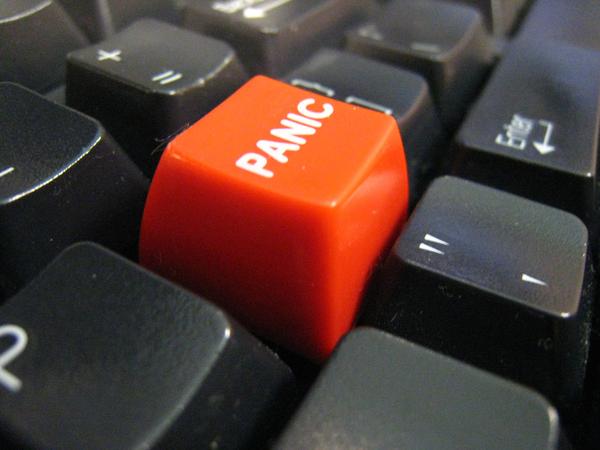
By Lori Schweickert, MD | Pediatric & Adult Psychiatrist
By definition, panic attacks consist of a discrete and intense fear that peaks within 10 minutes and seems to come out of nowhere. Often, there is an urge to flee the place where the symptoms began because of feeling impending danger. Panic attacks are often felt as physical symptoms and thoughts that the person is “going crazy” or is going to die.
The good news is that panic symptoms, though consisting of physical symptoms, do not cause physical harm. I like to think of panic attacks as a “false alarm” of the hard-wired system in the brain we all have and need to signal us when danger is truly present.
For example, if a lion came into the room, it would trigger an appropriate fear response. The body’s normal reaction is to raise blood pressure, shunt blood to muscle, brain, lungs, and other organs that help with physical movement such as running or fighting. If you think about it, these same bodily symptoms are often affected during a panic attack, which is why I think of a panic attack as a “false alarm.”
While bodily sensations are part of a panic attack, there are ways to reduce the physical symptoms with helpful thoughts. Having a well-rehearsed plan in place can make a world of difference. Not only can a plan reduce the intensity of the panic attack, but it can also shorten the duration.
Dealing with Panic Attacks
- During a panic attack, people tend to become preoccupied with their bodily sensations. The first thing is to recognize that this is a panic attack and find something outside of your body on which to focus. I recommend finding a clock or watch with a sweep second hand and limiting the number of breaths you take to 15 or fewer per minute. You may feel that this is difficult, but it may be the most important thing, since breathing too fast causes the panic attack to worsen significantly.
- While you may feel frightened, unsteady, or as if you are going to die, these feelings are nothing more than an exaggeration of the normal bodily reactions to stress.
- Experiencing these sensations does not mean you are sick.
- Let the feelings come. Keeping them inside makes them more powerful. When you feel panic, take a deep breath in through your nose. As you breathe out through your mouth, let go of the tension. You can deal with this.
- Try to make yourself as comfortable as possible without escaping. Fleeing, though tempting, will only reinforce itself, and you will find yourself limiting the places you feel comfortable going.
- Think about what is really happening to you at this moment. Is it as dangerous as that lion?
- Wait and give the fear time to pass. Notice as you stop adding the frightening thoughts to your panic, the fear starts to fade away by itself.
- Try to distract yourself from what is going on inside you. Look out around you. See that others are not panicking.
- Once a person begins to interpret normal bodily sensations as danger signals, a cascade of other bodily sensations are likely to follow, which will only make matters worse. Focusing on things around you and not inside you will be helpful.
- When the panic subsides, relax your body, take a deep breath, and continue on with your day. Every panic attack is a chance to practice your skills.
- Mastery of these skills means mastering your fear. Remember, each time you cope with panic and anxiety, you reduce your fear.
Treatment for Panic Attacks
If you are in treatment for panic attacks, I recommend writing down a sentence or two about the attack: where you were, what you were doing, thoughts or feelings you were having right before the panic attack, and any other information you think may be important.
Who knows, they might be helpful to your treatment provider!



